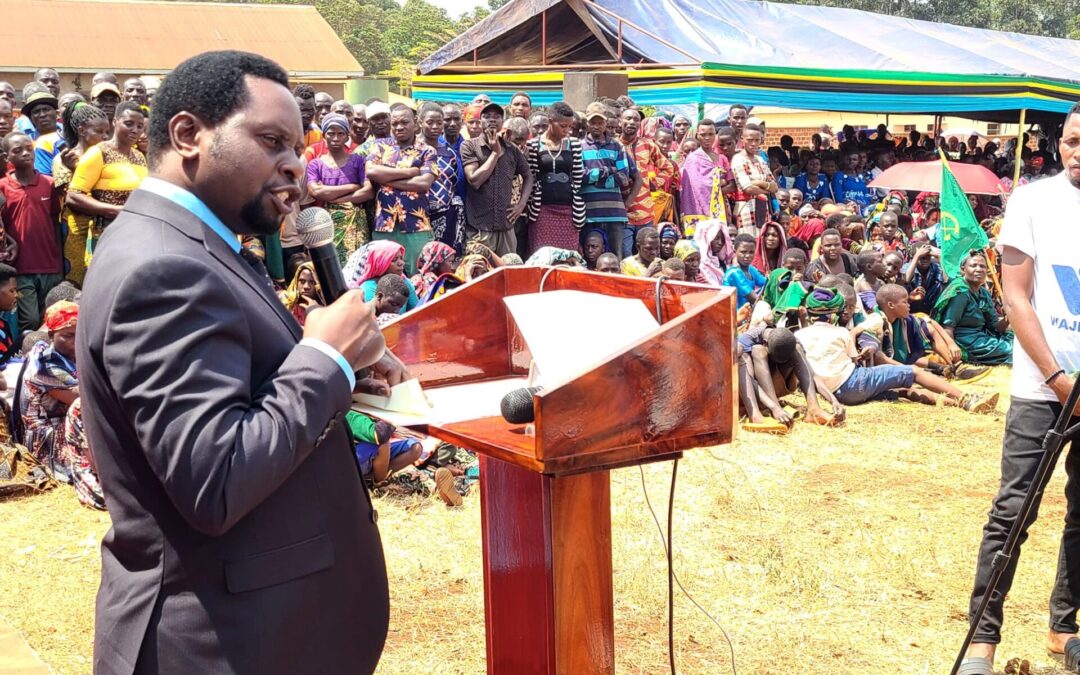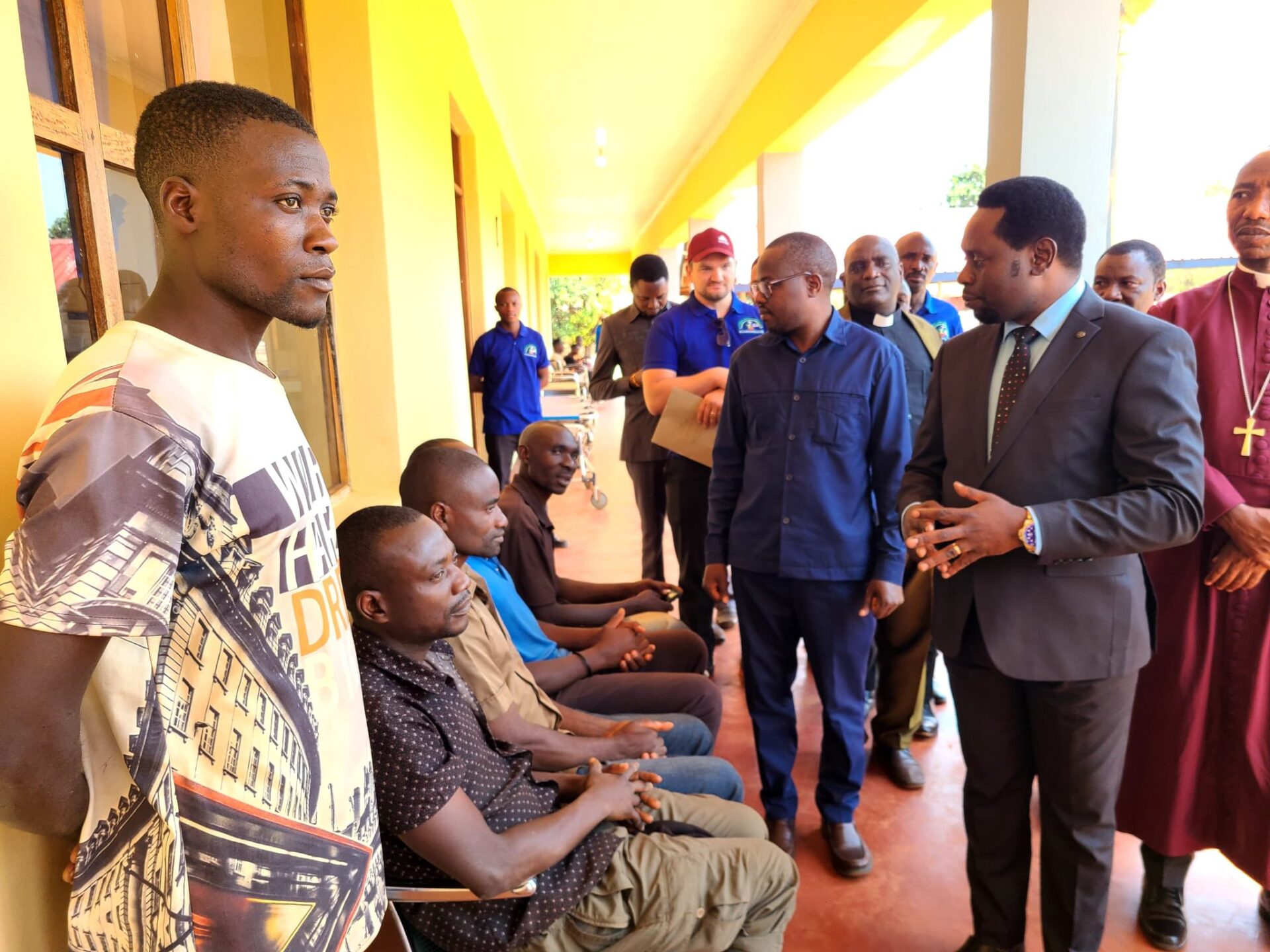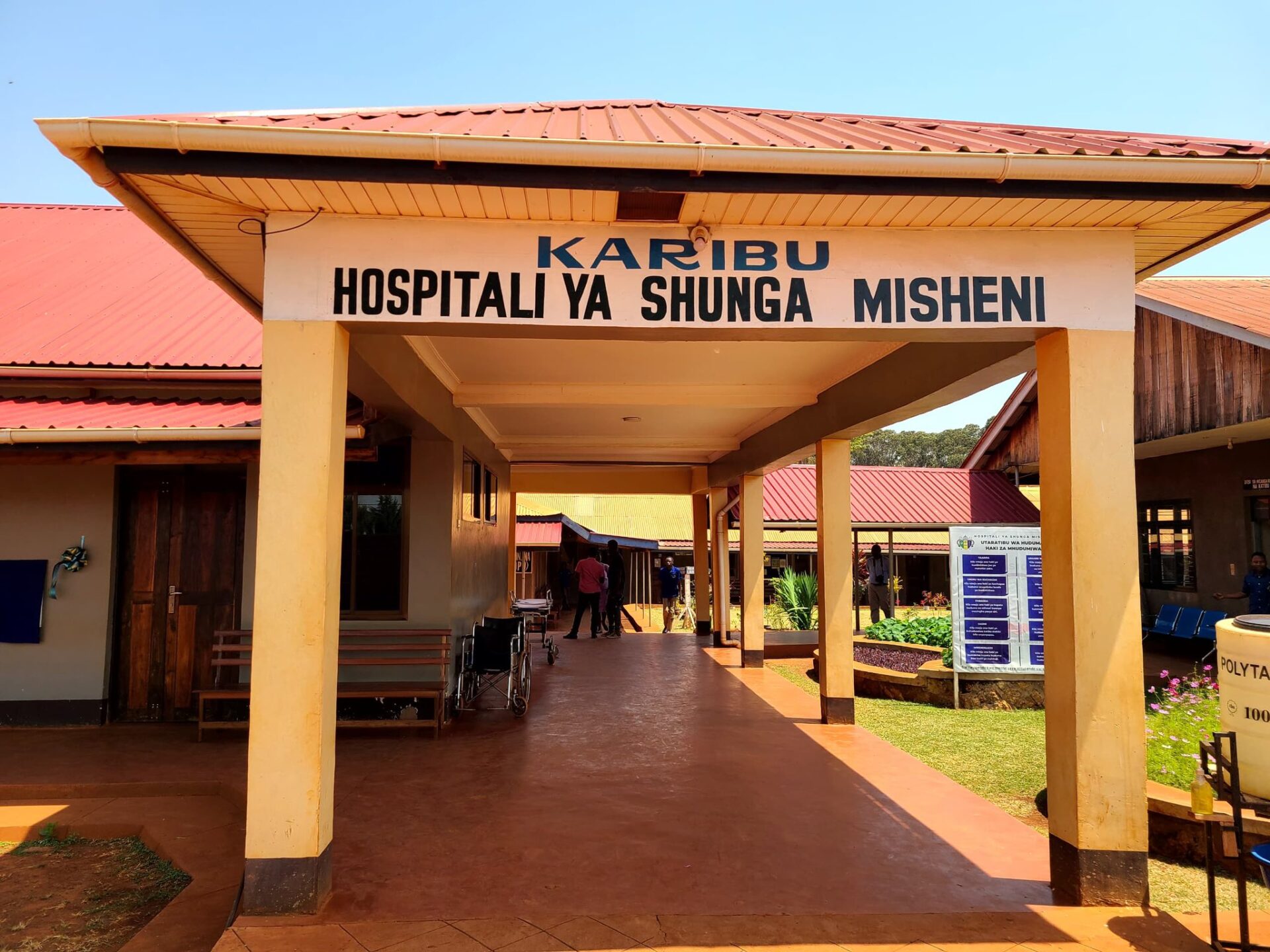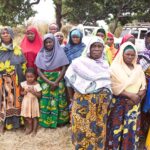Deputy Minister Inspects and Initiates Renovation of Shunga Mission Hospital
Kigoma, Tanzania – 26th September 2024
The Deputy Minister of State Office of the President, TAMISEMI, who is responsible for matters pertaining to health, conducted an inspection and initiated the renovation of the Shunga Mission Hospital, which has been upgraded to a hospital in Wikaya Kasulu council in Kigoma region.
During the course of his inspection of the hospital buildings, Hon. Dr. Dugange, who represented Prime Minister Kasim Majaliwa at the opening, articulated the government’s gratitude for the involvement of private institutions in the provision of health services. He indicated that his office will continue to provide support to these institutions in order to ensure the sustained provision of reliable health services to the people.
Dr. Dugange encouraged residents of the Kigoma region and Tanzania in general to utilise the services of health centres when they become unwell, in order to ascertain the underlying causes of their illness, rather than focusing on the treatment of the symptoms. He underlined the considerable financial resources committed by the government and development partners to the health sector, urging the public to make use of these services in accordance with the guidance provided by experts.
The Deputy Minister requested that non-governmental institutions providing health services employ qualified experts and operate in accordance with the guidelines set forth by the President’s Office TAMISEMI.
The hospital renovation was financed by a total of Shs 2.4 billion, with contributions from various donors, including religious institutions, Ready charity of Austria, Alliance Mission, and friends of the Anglican Church, Western Diocese of Tanganyika, Kigoma Region from Germany.
Shunga Mission Hospital
Shunga Mission Hospital is a faith-based, not-for-profit medical facility situated within the Wikaya Kasulu council area of the Kigoma region in Tanzania. The hospital was established in 1964 by the Anglican Church of Tanzania and has been providing comprehensive healthcare services to the community for over half a century.
Shunga Mission Hospital serves as a referral hospital for the Kigoma region, offering a comprehensive range of medical services. These include:
* Inpatient and outpatient care
* Emergency services
* Maternal and child health services
* HIV/AIDS care and treatment
* TB care and treatment
* Surgery
* Laboratory services
* Pharmacy
The hospital employs a workforce of over 100 individuals dedicated to the provision of healthcare services, comprising medical practitioners, nursing staff, midwives, and ancillary personnel. Shunga Mission Hospital is dedicated to the provision of quality healthcare services to all patients, irrespective of their financial status.
In 2024, Shunga Mission Hospital was granted hospital status by the Tanzanian government. This upgrade is indicative of the hospital’s dedication to the provision of superior healthcare services to the community, as well as its esteemed position as a valuable resource for the Kigoma region.
Shunga Mission Hospital constitutes a vital component of the healthcare system in the Kigoma region, playing a pivotal role in enhancing the health and well-being of the community.
Kigoma region
* Location: Western Tanzania, bordering Lake Tanganyika, Burundi, Rwanda, Kagera, Geita, and Tabora regions
* Population: Over 2 million
* Area: 45,066 square kilometers
* Regional capital: Kigoma city
* Districts:
* Buhigwe District
* Kasulu District
* Kibondo District
* Kigoma District
* Kakonko District
* Uvinza District
* Mpanda District
* Nsimbo District
* Ethnic groups: Ha, Tongwe, Bende, Nyamwezi
* Major economic activities: Coffee, cotton, tobacco production; mining (gold, diamonds, tin)
* Tourism: Lake Tanganyika is a major attraction
The following points are of particular significance:
The Kigoma Region is a diverse and culturally rich area that offers a plethora of attractions to visitors.
The region boasts a robust tourism industry, with Lake Tanganyika serving as a significant draw.
The Kigoma Region is a significant contributor to the national economy, with a prominent role in the production of coffee, cotton, and tobacco.
Additionally, the region is a significant source of valuable minerals, including gold, diamonds, and tin.
Deputy Minister of State Office of the President, TAMISEMI
The Deputy Minister of State, TAMISEMI, is tasked with providing assistance to the Minister in the supervision of the implementation of government policies and programmes within the domains of regional administration and local government. Additionally, the Deputy Minister is responsible for coordinating the activities of the State Office of the President, TAMISEMI, with other government ministries and agencies.
The Deputy Minister of State, Office of the President, TAMISEMI, is entrusted with a number of key responsibilities, including:
* Assisting the Minister in the development and implementation of government policies and programmes pertaining to regional administration and local government
* Coordinating the activities of the State Office of the President, TAMISEMI with those of other government ministries and agencies
* Monitoring and evaluating the performance of regional and local governments
* Providing guidance and support to regional and local governments
* Representing the government at meetings and events related to regional administration and local government
The Deputy Minister of State, who serves at the pleasure of the President of Tanzania, is appointed by the President. The current Deputy Minister is David Silinde.
The qualifications for the position of Deputy Minister of State in the Office of the President, TAMISEMI, include:
* A Bachelor’s degree in public administration, political science, or a related field
* At least five years of experience in regional administration or local government
* Proficiency in leadership and management skills
* Exceptional communication and interpersonal abilities
The Deputy Minister of State Office of the President, TAMISEMI, occupies a pivotal position within the Tanzanian government. The Deputy Minister is responsible for facilitating the effective implementation of government policies and programmes at the regional and local levels.
Health services
Health services are defined as the services provided to individuals and communities with the objective of promoting, maintaining, or restoring health. Such services encompass the following:
* Preventive services: The objective of these services is to prevent the occurrence of illness and injury. Such services include vaccinations, screenings, and health education.
* Diagnostic services: Such services facilitate the identification and diagnosis of illnesses and injuries. Such procedures include laboratory tests, imaging tests, and biopsies.
* Treatment services: These services are employed in the treatment of illnesses and injuries. Such services encompass medication, surgical procedures, and rehabilitative treatments.
* Rehabilitation services: These services facilitate the recuperation of patients from illnesses and injuries, enabling them to regain their functional abilities. Such services include physical therapy, occupational therapy, and speech therapy.
Health services can be provided in a variety of settings, including hospitals, clinics, doctors’ offices, and community centres. A variety of healthcare professionals are able to provide these services, including doctors, nurses, physician assistants and pharmacists.
Access to health services is a fundamental requirement for the maintenance and enhancement of individual and community health. Nevertheless, accessibility to health services may be constrained by a multitude of factors, including financial constraints, transportation difficulties, and cultural impediments.
Importance of health services
The provision of health services is of paramount importance in the promotion, maintenance and restoration of health. They facilitate the prevention of illness and injury, the identification and diagnosis of health problems, and the treatment of illnesses and injuries. Furthermore, health services facilitate the recuperation of patients from illnesses and injuries, enabling them to regain their functional abilities.
Access to health services is a crucial factor in enhancing the overall health and well-being of individuals and communities. The provision of health services can assist in the reduction of morbidity and mortality, the enhancement of quality of life, and the stimulation of economic growth.
Challenges to accessing health services
A number of challenges impede access to health services, including:
* Cost: The financial burden associated with health services can be a significant obstacle for individuals seeking to access the care they require.
* Transportation: The lack of reliable transportation can impede access to health services, particularly for individuals residing in rural areas.
* Cultural barriers: Additionally, cultural barriers can impede individuals’ ability to access health services. To illustrate, certain cultural norms may dissuade individuals from seeking assistance for mental health concerns or from consulting a healthcare provider of the opposite gender.
Improving access to health services
A variety of strategies may be employed to enhance accessibility to health services, including:
* The expansion of health insurance coverage: The expansion of health insurance coverage can facilitate the affordability of health services for individuals.
* The allocation of financial resources towards the development of public transportation infrastructure. Investment in public transportation can facilitate access to healthcare appointments for individuals.
* The need to address cultural barriers: The identification and subsequent removal of cultural barriers can facilitate greater accessibility to health services for individuals from all backgrounds.
Improving access to health services is a crucial step in enhancing the overall health and well-being of individuals and communities. By enhancing the affordability, accessibility, and acceptability of health services, it is possible to guarantee that all individuals are afforded the chance to live a healthy life.
Tanzania Media
- Kanyala Ferry Launch: TEMESA’s New Service for 15,000 Sengerema Residents (Mwanza) - 18 August 2025
- Russia-Tanzania Naval Cooperation: How the Smolny Training Ship Boosts Dar es Salaam’s Maritime Security - 18 August 2025
- Tanzania’s ICGLR Commitment: Stabilising the DRC & Great Lakes Region - 18 August 2025













